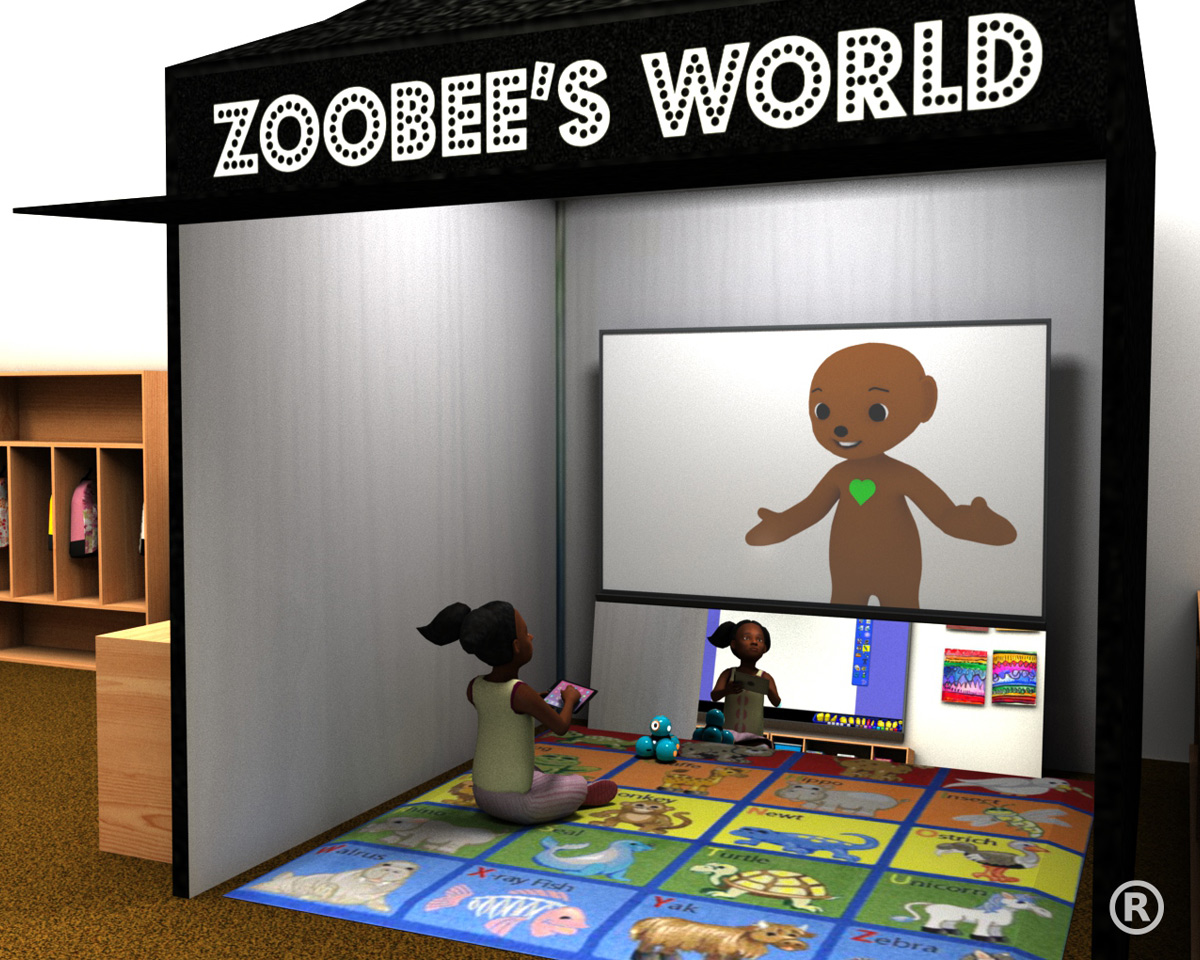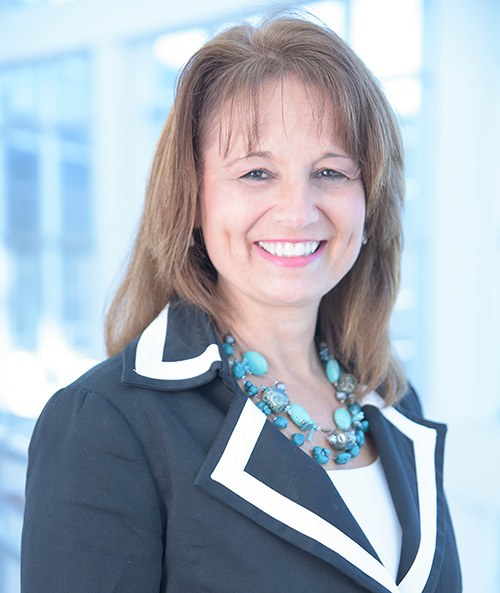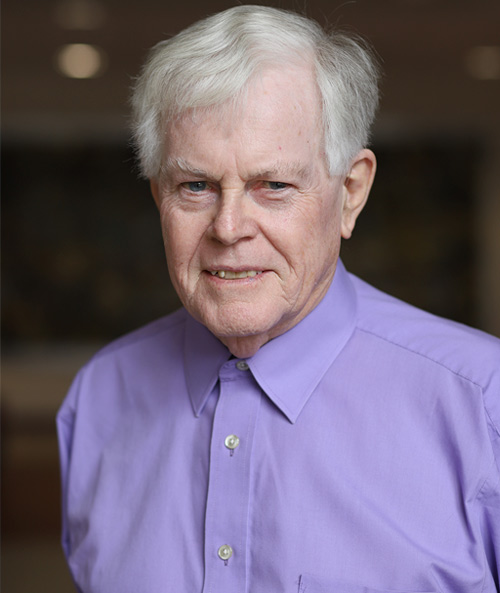The Center for Research in Education Simulation Technology develops technology that responds to patient and autonomously adjusts scenarios to help advance therapy.
BY ALEXANDRA SHIMALLA | November 18, 2020

The two patents combine in Zoobee’s World, where children learn social-emotional skills while researchers monitor situations that might cause them stress. (Image property of Center for Research in Education Simulation Technology®)
UCF has patented new technologies that use sensors to create virtual simulations that respond to individuals to help people conquer fears and anxiety.
The premise is to use emerging sensor-based technology to help people suffering from anxiety disorders, individuals with autism spectrum disorder or those with executive functioning issues, says Lisa Dieker, an exceptional student education professor and co-director of the Center for Research in Education Simulation.
The technology would be used to expose a person to what they most fear and slowly reduce the stress response. A second design patent will be directly aimed at helping children with autism spectrum disorder.
We’re now at a point with biometric sensors to be able to tell if your body and mouth are saying something, but is your brain following? What is a person’s fear? How can we simulate aspects of that fear and use sensors to help us understand when we are helping and when we might be adding stress? The technology we are using will ensure that the situation is not too overwhelming.
For example, a plane crash survivor who is afraid of flying could strap on the virtual reality device with feedback sensors that monitor heart rate, blood volume, temperature and movement. The technology would create a virtual empty plane. The virtual environment would begin to add things like seats, exit signs, other passengers or the sound of the seatbelt warning light when the individual was ready. The participant’s vitals would be closely monitored via the sensors. Once the environment triggered an escalated stress response, the simulated environment would be paused. The educator, researcher or therapist would discuss the trigger with the participant and then would try it again, slowly scaling back up.
“The patent is putting together sensors and scaling back the technology when the sensors tell the system that someone needs to decrease their stress,” Dieker says.
The purpose is to eventually get the individual acclimated to whatever situation or environment causes them stress.
“People learn through reflection,” says Charlie Hughes, a co-director of the Center for Research in Education Simulation Technology and a computer science professor. “Previously, reflective feedback was based upon subject-matter experts tagging events that they saw going on in a simulation, what the person did and how they responded. With this technology, what we’re really looking at is automating a great deal of that because we’re picking it all up with sensor data. That sensor data can feed into visualizing the data in ways that help people understand what’s going on.”
The patented technology will first be used in a newly funded project with UCP of Central Florida, a nonprofit organization and charter school system for students with and without disabilities. The project, funded through a U.S. Department Stepping-Up Technology grant, also will use the other design patent for Zoobee, a teddy-bear-like character.

Lisa Dieker

Charlie Hughes
Eric Imperiale, a research technician of the School of Modeling, Simulation and Training, designed Zoobee, a three-dimensional character that interacts with children.
Zoobee will be used to help children with autism spectrum disorder and other disabilities learn and control their emotional-social responses. The end result of the grant is an open-access website detailing results, giving people the ability to use Zoobee and the patented technology to help children on a larger scale.
The Center for Research in Education Simulation Technology aids UCF in its effort to be a leader in research and education through simulation. Faculty are given the opportunity to collaborate on unique, internationally recognized research. Housed within the College of Community Innovation and Education, the center develops ideas, technologies and applications of UCF-created and partnership-developed education simulation technologies.
Dieker joined UCF in 2003. She is a Pegasus Professor and Lockheed Martin Eminent Scholar Chair.
Hughes joined UCF in 1980. He is a Pegasus Professor and the interim director of the School of Modeling, Simulation and Training's graduate programs.